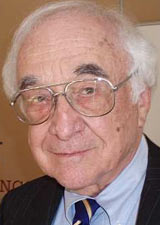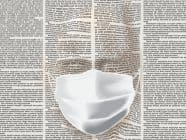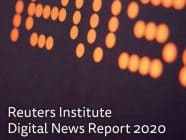 Interview with Phil Meyer, professor emeritus and former Knight Chair of Journalism at the University of North Carolina at Chapel Hill.
Interview with Phil Meyer, professor emeritus and former Knight Chair of Journalism at the University of North Carolina at Chapel Hill.
Q: How do you think journalism will change in the next 10 years?
I have no idea how things will change in the next 10 years. I can barley keep track of what’s happening right now. But I hope there will be many, many experiments. Many different things will be tried out and the process of natural selection will lead us to the media of the future. I just hope it will be a media system that is compatible with democracy, one that can help sustain and nurture democracy, because new media presents both dangers and opportunities. Looking ahead I am hopeful but I am also frightened.
Q: What are you afraid of in current media development?
New media encourages specialization, and if we all become so specialized in our interests, we only look for information about ourselves and people who think like us. Democracy depends on consensus, and you can’t have consensus if everybody grows more and more interested in his or her own interests. There is no room left for collaboration and deliberation and compromise. I fear that new media might discourage compromise. Somebody has to find a way around that. It’s not going to be me, but maybe one of my students.
Q: Can quality journalism survive anyway?
Quality journalism is influential journalism exercised in the public interest. The Web undermines this in two ways. First, the Web makes advertising cheaper, thus eroding traditional means of support for quality journalism. Second, by increasing information clutter, the Web makes it more difficult for quality journalism to reach its intended audience. In the U.S., the first problem is already being addressed with innovative forms of funding, mostly by charity. But the problem of getting messages to an attentive public remains unsolved.
Interview by Judith Leitner
Tags: Democracy, Funding News, media systems, New media, Philip Meyer, Quality Journalism, University of North Carolina at Chapel Hill













































